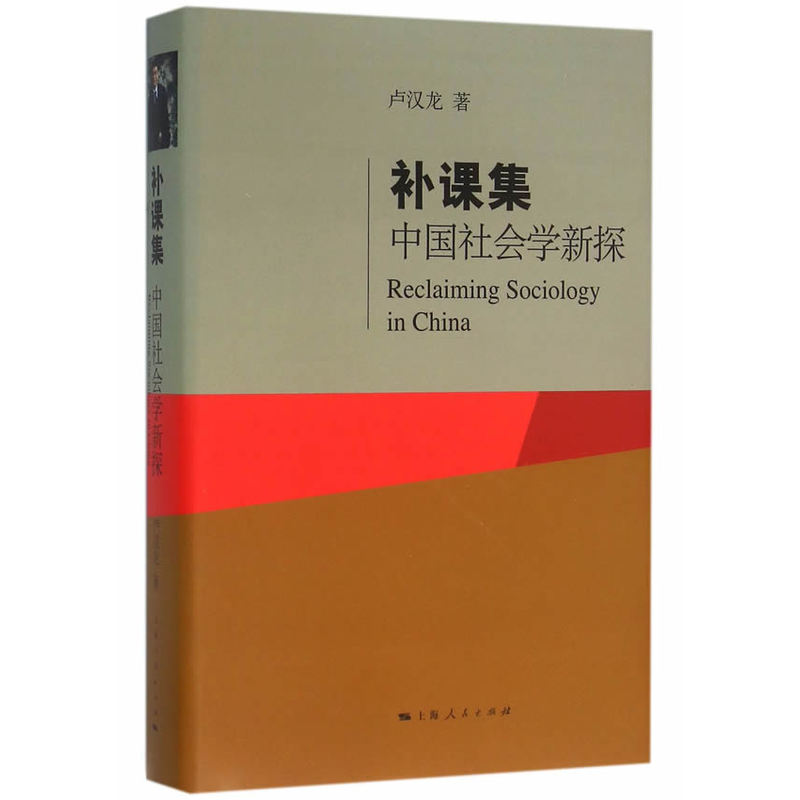- ISBN:9787208135970
- 装帧:暂无
- 册数:暂无
- 重量:暂无
- 开本:16开
- 页数:551
- 出版时间:2016-03-01
- 条形码:9787208135970 ; 978-7-208-13597-0
本书特色
本书循着20世纪80年代中国恢复社会学教学和研究以来的轨迹,记录和展示了该学科在理论补课和实践发展中的足迹。全书多方位地提供了中国社会学新探索以来的成果:从社会学如何走出历史阴影,确立起独立社会科学学科地位开始,用社会学的视野对中国当代社会变迁提供了独到的理论认识,同时通过一系列深入的社会调查来报告各种社会学议题的研究发现。作者特别关注草根社会从社区到社团的现代化发展进程,并提供了社会学研究如果应用于公共政策和社会治理,发挥思想智库作用的经验。
内容简介
卢汉龙是中外很少见到的接合社会学研究与社会管理需求的学者。他做研究:谨慎思考理论背景和布局,仔细挑选主题,精心设计问卷和指标,同时运用质与量的田野方法,兼顾中外学术考量,紧扣当前社会政策和管理议题需要。三十多年来,锲而不舍,埋头耕耘。欣见《补课集》,让学者、管理工作者和关心社会的读者,分享其成,实为应用社会学的典范与楷模。
目录
相关资料
汉龙的《补课集:中国社会学新探》,是他用一生的学术道路和奋斗足迹完成的新作,从中可以品味出中国社会学家的坎坷和成就、智慧和超越。他的作品反映了一代中国学人的探索追求,也反映了改革开放以来中国社会学的品格特征,那就是经世致用的文人担当,对大众民生的始终关注,“为了中国”的毕生情怀。中国社会科学院副院长 李培林研究员卢汉龙的学术生涯致力于对日常生活严谨的分析来探究中国社会变化的原动力。怀着求知的欲望和对广阔社会的深沉关切,卢教授不断地对近现代中国社会研究作出奠基性的贡献。通过这本《补课集》的中国社会学新探索,当代读者乃至未来的学人们都能从这位卓越学者的睿智和洞察力中获益匪浅。 美国耶鲁大学社会学系 戴慧思(deborah davis)教授
作者简介
卢汉龙,上海社会科学院社会学所研究员,中国社会学会学术委员会委员。曾担任上海社会科学院社会发展研究院院长(2001-2009),社会学研究所所长(1994-2009),上海市人民代表大会代表(1993-2013),上海市人民政府参事(2006-2013)。曾多次到欧美大学和研究机构做学术访问和开展合作研究。应邀担任英国社会学会《社会学》(Sociology)杂志国际编委,香港《中国评论》(The China Review)编委和香港人文社会研究所顾问。
-

蛤蟆先生去看心理医生
¥26.6¥38.0 -

咬文嚼字二百问
¥9.6¥32.0 -

世界尽头的咖啡馆
¥18.0¥45.0 -

字海探源
¥25.0¥78.0 -

从零开始的女性主义
¥30.3¥52.0 -

乡土中国
¥14.6¥26.0 -

与内心的恐惧对话:摆脱来自亲人的负能量
¥34.1¥48.0 -

《标点符号用法》解读
¥6.2¥15.0 -

中国人的精神
¥9.9¥29.0 -

社会学:原来这么有趣有用
¥9.1¥36.0 -

你能写出好故事-写作的诀窍.大脑的奥秘.认知的陷阱
¥9.8¥32.8 -

焦虑心理学:不畏惧、不逃避,和压力做朋友
¥11.4¥38.0 -

乌合之众:大众心理研究
¥12.1¥36.8 -

理解生命
¥10.5¥32.8 -

从白大褂到病号服:探索医疗中的人性落差
¥12.7¥39.8 -

非暴力沟通心理学 : 用非暴力沟通化解冲突
¥9.0¥36.0 -

上大演讲录(1922-1927卷)(九品)
¥14.0¥52.0 -

那时的大学
¥8.4¥28.0 -

乌合之众:群体心理研究
¥11.9¥39.8 -

始于极限:女性主义往复书简(八品)
¥22.4¥59.0













